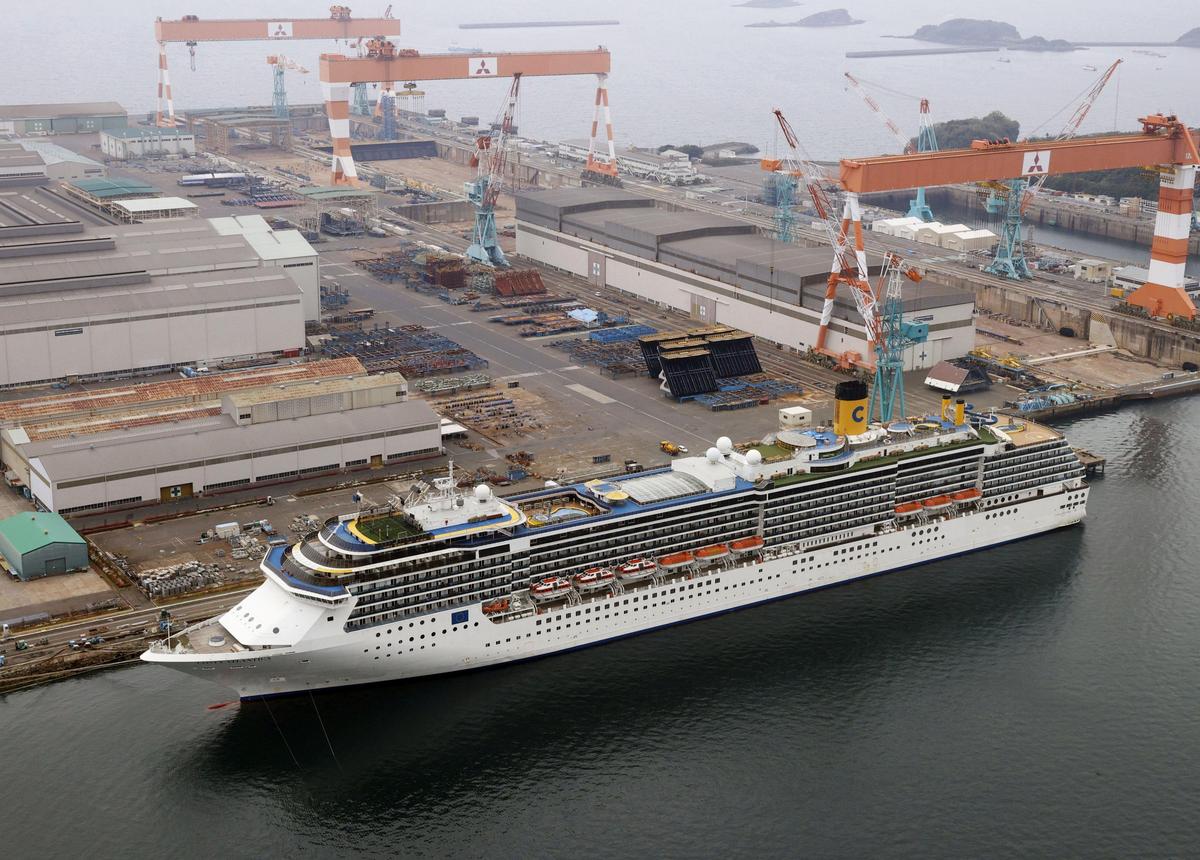NAGASAKI, Japan (Reuters) – Seven days before Japan quarantined a cruise ship near Tokyo early this year, in what became one of the first coronavirus hot spots outside China, another cruise ship docked in southern Japan.
An aerial view shows Italian cruise ship Costa Atlantica, which has crew members confirmed with cases of the coronavirus disease (COVID-19) infection, in Nagasaki, Japan April 26, 2020 in this photo taken by Kyodo. Picture taken April 26, 2020. Mandatory credit Kyodo via REUTERS ATTENTION EDITORS – THIS IMAGE WAS PROVIDED BY A THIRD PARTY. MANDATORY CREDIT. JAPAN OUT. NO COMMERCIAL OR EDITORIAL SALES IN JAPAN.
For the next five weeks, as the virus took hold in Japan and the Diamond Princess in Yokohama port grabbed global attention, the Japanese authorities issued no warnings to the Costa Atlantica 1,200 km (750 miles) to the southwest.
Passengers from the Yokohama ship were dying while people from the other vessel freely got on and off, dining and shopping in Nagasaki, and dozens of new crew members were flown in to replace those whose work contracts were expiring.
The Costa Atlantica now hosts one of Japan’s biggest clusters of the coronavirus, which infected one-fourth of the more than 600 people then on board.
Public-health experts say a lack of additional measures on cruise ships after the Diamond Princess outbreak, toothless coronavirus legislation and a nationwide paucity of virus testing combined to allow the outbreak on the Costa Atlantica to blossom.
This was compounded by local and national authorities’ decision to corral infected and uninfected people on the Costa Atlantica, making it harder to stem the on-board infection.
“It seems that a situation similar to the Diamond Princess is being created,” said Dr Amesh Adalja, an infectious-disease specialist at the Johns Hopkins Center for Health Security. “In an effort to keep cases from disembarking, more cases will occur among the (people on board), some of which could be severe and preventable.”
The law authorising Prime Minister Shinzo Abe’s national state of emergency and restrictions on movement by various regional governors carries few legal penalties, part of Japan’s postwar aversion to curbs on personal liberties. It re

